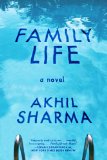Summary | Excerpt | Reviews | Beyond the Book | Readalikes | Genres & Themes | Author Bio

Critics' Opinion:
Readers' Opinion:
First Published:
Apr 2014, 224 pages
Paperback:
Feb 2015, 224 pages
 Book Reviewed by:
Book Reviewed by:
Poornima Apte
Buy This Book
To understand the glamour of science, it is important to remember that the sixties and seventies were the era of the Green Revolution. Science seemed the most important thing in the world. Even I, as a child of five or six, knew that because of the Green Revolution there was now fodder in the summer and so people who would have died were now saved. The Green Revolution was effecting everything. I heard my mother discuss soy recipes with neighbors and talk about how soy was as good as cheese. All over Delhi, Mother Dairy was putting up its cement kiosks with the blue drop on the side. That the Green Revolution had come from the West, that organizations like the Ford Foundation had brought it to us without expectations of gain or payment, made the West seem a place for great goodness. I personally think that all the anti-Western movies of the seventies like Haré Rama, Haré Krishna and Purab aur Pachhim sprang not from the unease of hippies arriving but from our sense of inferiority before the munificence of the West.
My mother had no interest in emigrating for herself. She was a high school teacher of economics, and she liked her job. She said that teaching was the best job possible, that one received respect and one learned things as well as taught them. Yet my mother was aware that the West would provide me and my brother with opportunities. Then came the Emergency. After Indira Gandhi suspended the constitution and put thousands of people in jail, my parents, like nearly everyone, lost faith in the government. Before then, my parents, even my father, were proud enough of India being independent that when they saw a cloud, they would think, That's an Indian cloud. After the Emergency, they began to feel that even though they were ordinary and not likely to get into trouble with the government, it might still be better to leave.
In 1978, my father left for America.
In America, my father began working as a clerk for a government agency. He rented an apartment in a place called Queens, New York. A year after he left us, he sent airplane tickets.
The Delhi of the seventies is hard to imagine: the quietness, the streets empty of traffic, children playing cricket in the middle of the street and rarely having to move out of the way to let cars by, the vegetable vendors who came pushing their carts down the street in the late afternoon, crying out their wares in tight, high-pitched voices. There weren't VCRs back then, let alone cable channels. A movie would play for twenty-five or fifty weeks in huge auditorium theaters, and then once the movie was gone, it was gone forever. I remember feeling grief when the enormous billboards for Sholay at the end of our street were taken down. It was like somebody had died.
It is also hard to remember how frugal we were. We saved the cotton that comes inside pill bottles. Our mothers used it to make wicks. This frugality meant that we were sensitive to the physical reality of our world in a way most people no longer are. When my mother bought a box of matches, she had my brother sit at a table and use a razor to split the matches in half. When we had to light several things, we would use the match to set a twist of paper on fire and then walk around the apartment lighting the stove, the incense stick, the mosquito coil. This close engagement with things meant that we were conscious that the wood of a match is soft, that a bit of spit on paper slows down how it burns.
By the time our airplane tickets arrived, not every family hired a band to play outside their house on the day of the departure to a foreign country. Still, many families did.
Excerpted from Family Life. Copyright © 2014 by Akhil Sharma. With permission of the publisher, W. W. Norton & Company, Inc.





The Flower Sisters
by Michelle Collins Anderson
From the new Fannie Flagg of the Ozarks, a richly-woven story of family, forgiveness, and reinvention.

The House on Biscayne Bay
by Chanel Cleeton
As death stalks a gothic mansion in Miami, the lives of two women intertwine as the past and present collide.

The Funeral Cryer by Wenyan Lu
Debut novelist Wenyan Lu brings us this witty yet profound story about one woman's midlife reawakening in contemporary rural China.
Your guide toexceptional books
BookBrowse seeks out and recommends the best in contemporary fiction and nonfiction—books that not only engage and entertain but also deepen our understanding of ourselves and the world around us.